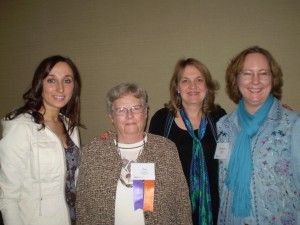Chairperson, 2009 – 2013; Member, Global Guidelines Task Force, Association for Childhood Education International, 2007 – 2013.
Since 2007, I have been a member of the Global Guidelines Task Force of the Association for Childhood Education International (ACEI) because ACEI is committed to providing resources that enhance childhood education programs throughout the world. I have been chairperson of the Task Force since 2010. During that period, Task Force members completed several reliability studies, generated a new edition of the Global Guidelines Assessment, and organized translations into English, French, Spanish, Greek, Chinese (simplified), and Chinese (traditional). To acquire these versions of the Global Guidelines Assessment materials, check the ACEI web pages.
During my term as chairperson, the task force completed the Turkish and Russian translations of Global Guidelines Assessment! I forwarded new translations in Turkish and Russian to the ACEI Headquarters for formatting and uploading to the website. Additional translations are being developed in Arabic, Korean, Italian, and Swahili.
ACEI’s Vision is that “Every child in every nation will have access to a quality education. This education will prepare children to become responsible and engaged citizens and ready them for life in a changing world.” It is a privilege for me to have a small part in achieving that vision.
________________________________________
More Information about Global Guidelines
________________________________________
Global Guidelines for Early Childhood Education and Care in the 21st Century
The Global Guidelines present standards for ensuring that young children receive an appropriate, quality education in a variety of settings. The Global Guidelines were developed as a collaborative project between the U.S. National Committee of the World Organization for Early Childhood (OMEP) and ACEI. The Global Guidelines were published in 2000 to address the fundamental elements necessary to create quality early care and education environments for young children around the world.
________________________________________
Key Principles of the Global Guidelines for Early Childhood Education and Care in the 21st Century
The premises of the Global Guidelines are key philosophies that provide its foundation.
1. Children are both the present and the future of every nation, they have needs, rights, and intrinsic worth that must be recognized and supported.
2. Every child should have the opportunity to grow up in a setting that values children, that provides conditions for a safe and secure environment, and that respects diversity.
3. Knowledge about human development is more substantial now than at any time in history. The new century offers opportunities to consolidate recent gains and respond to new challenges that lie ahead.
4. Children must receive appropriate nurture and education within and outside their families from birth onward if they are to develop optimally.
5. Attention to the health, nutrition, education, and psychosocial development of children during their early years is essential for the future well being of nations and the global community.
________________________________________
ACEI Global Guidelines Assessment (GGA)
The ACEI Global Guidelines Assessment (GGA) was developed as a way to assess the implementation of ACEI’s Global Guidelines. Originally published in 2003, the GGA was revised in 2006 and in 2011. The assessment serves as a resource for those teaching young children or administering early care and education programs, and we invite all educators and childcare providers around the globe to use the GGA. We are pleased that the GGA has been used in more than 35 nations.
________________________________________
Instructions for Using the GGA
The GGA is a valuable resource for early care and education programs. The assessment was developed with the input of educators from more than 27 nations. The assessment consists of five program content areas: Environment and Physical Space, Curriculum Content and Pedagogy, Early Childhood Educators and Caregivers, Partnerships with Families and Communities, and Young Children with Special Needs.
The 2011 edition of the GGA includes 76 indicators of program quality that have global relevance. Although the GGA includes a general rating scale (excellent to inadequate), educators need to determine their own methods of measuring the attainment of indicators in relation to their own nation’s policies and community practices and settings. ACEI encourages educators to use these resources either to design new early childhood programs or improve existing programs.
________________________________________
